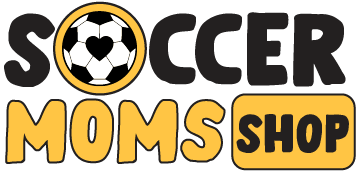Following years and years of scientific research examining which parental strategies are most likely to help children thrive when it comes to their sporting endeavours, we are now have more ideas about how parents can optimise their involvement in their children’s sport.
A recent survey found that 45% of children said that bad parental behaviour made them not want to take part in sport. The car journey home after a match is just one situation where a misspoken word can be magnified resulting in hours of stress, tears and frustration.
But parenting a youth athlete is much more than just what to say post-competition. Psychologist Dr Chris Harwood and Dr Camilla Knight have researched sporting parent expertise, what youth athletes want from their parents and optimising parental impact. They were kind enough to chat to us about their work and we have summarised the top 8 tips that we think all parents should know to better help and support their children.

SPORT PSYCHOLOGY FOR PARENTS
Develop goals with your children for their sport. Central to this is to have regular and consistent communication about what they want to achieve and what you hope they will achieve. The more congruent that these aims are the better. Setting goals is notoriously difficult, with them sometimes becoming an anchor dragging you down instead of a platform to build off. For more tips on how to master this, check out our blog, ‘How To Do Goal Setting Right’.
Create a supportive environment in which your child feels that you understand them and their sporting involvement. Parents can play a key role in reducing the fear of failure their child feels, with ‘Shame and Embarrassment’ being the number one worry that youth athletes think will follow a failure.
Talk to your child about what they would like you to do at training and competitions. After all, this is about them and not you. When it comes to youth sport, many parents fall in to the trap of talking more then they listen.
Be there to support and guide your child, but limit conversation about outcomes and expectations. Research from educational psychology has demonstrated that having high expectations can help improve performances, but only if they are accurate and accompanied with high levels of support. How parents communicate and react after a setback has been found to be a significant predictor of their child’s mindset.
Dr Knight’s research has shown that children want their parents to be involved in a supporting manner, rather than give technical or tactical advice. Furthermore, they appreciate when parents provide ‘common sense’ advice (i.e. on effort, attitude and practical aspects) rather than performance related advice.
Develop positive relationships with your child’s coach. The more that you can work with them and not against them, the better. Coaching is a tough gig – the more supportive and positive the relationship between parents and coaches then the more everyone benefits.
Socialize with other parents and create wider support network for you and your child. Being a parent whose children are heavily involved in sport can be a lonely place. By actively creating a wider support network for both you and your child, it makes the experience a more enjoyable. As 17th Century poet John Donne remarked, “no man is an island”.
Recognise what you find challenging about your child’s sport and develop strategies to manage to emotions. Dr Harwood and Dr Knight have found that parent’s ability to manage the emotional demands of competition will impact upon the child’s personal enjoyment and quality of experience. This emotional control allows parents to provide better support and feedback to their children.
Model healthy attitudes towards sport and physical activity. How a parent views the importance of education has been found to be a strong predictor of their child’s grades. Likewise, within sport, parents are often the primary source for how their young children view their participation.
All too often an emphasis is on becoming ‘elite’. This leads to over-coaching, excess pressure and focusing too early on just one sport in attempt to clock up as many hours as possible. The paradox here is that research suggests that if young children focus on just one sport (instead of sampling and enjoying many) they are actually less likely to reach the highest levels.
Source: https://www.parentsinsport.co.uk
PS. Whether you browse our site once a month or every day, we’re always glad to have you. And we want you to enjoy Rewards. Just sign up, complete a few fun actions and you’ll earn Coins. Coins add up to Rewards and Rewards convert into big discounts for you and your child! Click here to Join the Loyalty Club!

